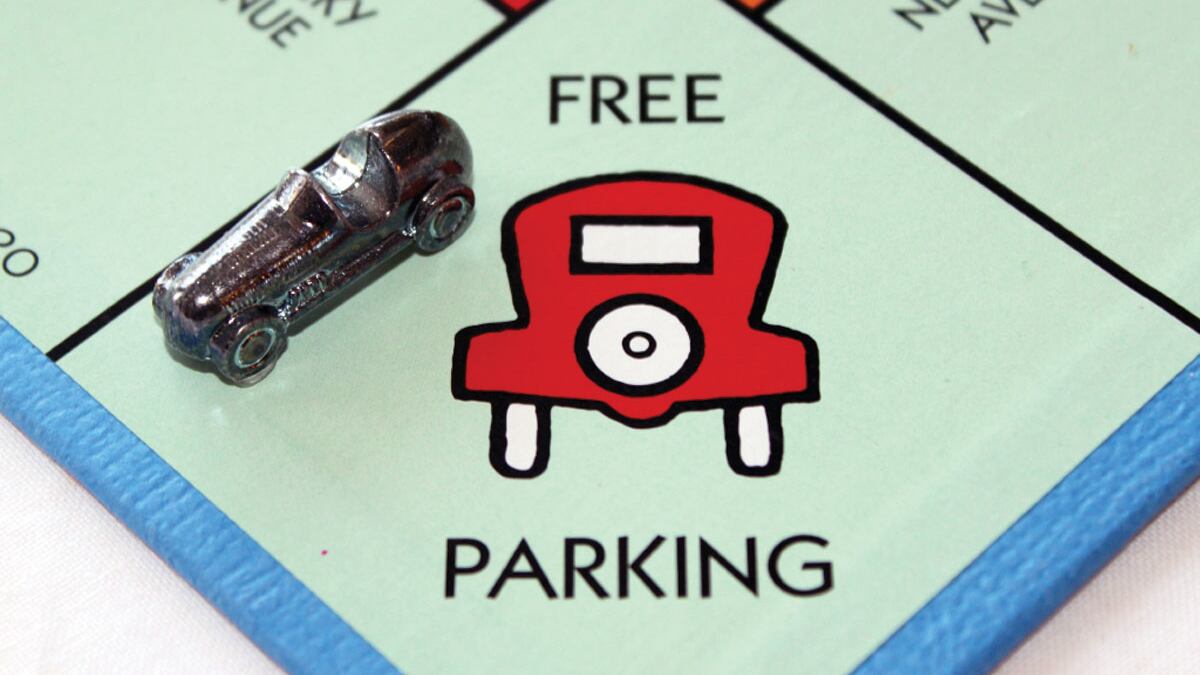Parking in the U-Park garage at Northwest Broadway and Flanders Street isn't cheap: Posted rates range from $4.50 an hour to $14.50 a day.
But the spaces aren't supposed to exist at all. The garage's owner is operating it in defiance of city zoning code—paying $1,400 a month in fines rather than follow city rules and shut the garage down.
The scofflaw garage is owned by Harsch Investment Properties, the real estate empire run by Jordan Schnitzer. The fines seem barely to dent the profits Harsch garners from renting parking spaces.
Related: Jordan Schnitzer Gets a Son—and a Court Battle
"It appears the monthly code-enforcement fees have become the cost of doing business," says Michael Liefeld, who runs enforcement at the city's Bureau of Development Services.
Harsch is exploiting a loophole in city policy. Portland usually relies on the threat of fines to force property owners to follow the rules. But if a company has deep enough pockets, it can simply treat the fines like a speed bump.
Related: Puttin' on the Schnitz
And unless officials at BDS receive more complaints from the public, they rarely increase the financial penalties beyond doubling them after three months.
City rules say that parking garages can't expand their operations except under limited exceptions. Yet Harsch expanded parking at the garage from eight city-authorized parking spaces to more than 50 by 2015, according to bureau records.
City Commissioner Chloe Eudaly says it's a tough call how BDS should approach the problem, given that the violation isn't a safety hazard. But she described Harsch as operating as if it were above the rules.
"We see this a lot in different arenas," Eudaly says. "Businesses just flout the rules and write off the penalty."
The scofflaw garage is defying Portland rules intended to limit car traffic downtown.
In the late 1970s, Portland restricted parking in the central city as part of an effort to improve air quality.
Restrictions on parking persist for other reasons, too: encouraging commuters to take public transportation and creating a walkable downtown, both of which have put Portland on the map of desirable small cities.
Watchdogs of city parking policy say the city's rules are designed to reduce cars clogging downtown streets.
"They call for reductions in single-occupancy vehicles," says Tony Jordan, founder of Portlanders for Parking Reform, a group trying to reduce car use.
"Adding any parking is allowing for more traffic that will make it harder to meet our goals."
The city allows new parking to be added in the central city if developers build housing or commercial space. Harsch did neither.
A company spokesman claims it is trying to address the problem. "We have been working closely with the city and GBD Architects on the parking permitting process in an effort to be fully compliant with all city regulations," says David Shane, who declined to comment further.
City officials have known the garage was breaking the rules for more than two years, and in 2016 they started levying fines, now totaling $28,380.74.
Harsch paid the fines and continues to cash in on the garage, whose posted rates suggest it could have brought in more than $360,000 over that period.
The bureau has the authority to take property owners before a city hearings officer and begin levying fines of $1,000 a day. But it hasn't done so with the Harsch garage—in part because it was waiting to hear more public complaints, and nobody else complained.
Liefeld says such fines are usually reserved for situations that pose an immediate risk to health or safety or for other high-priority reasons. But when WW presented him with details about the Harsch garage, Liefeld acknowledged the case may qualify as a "gross" violation.
"We don't track every case that's being assessed," he says. "We only figure out these things if someone calls."

